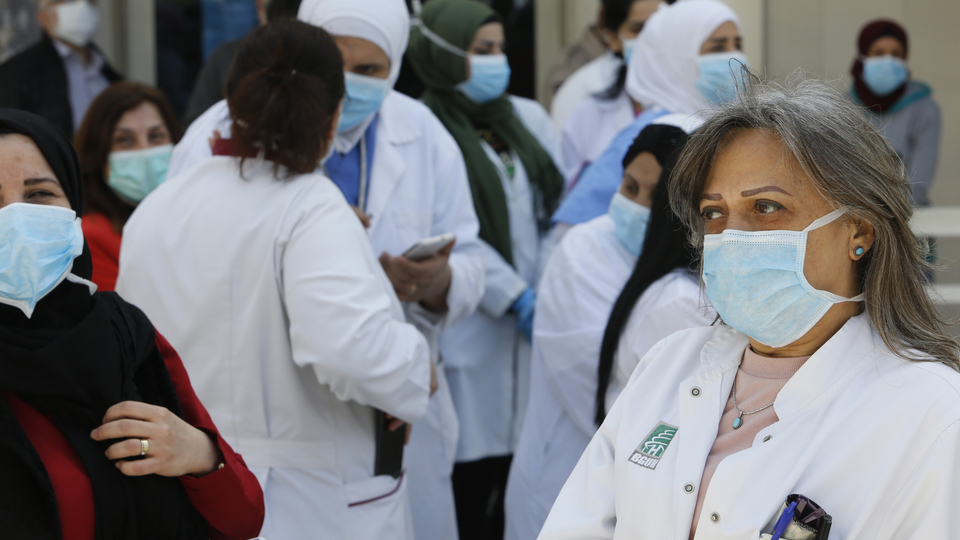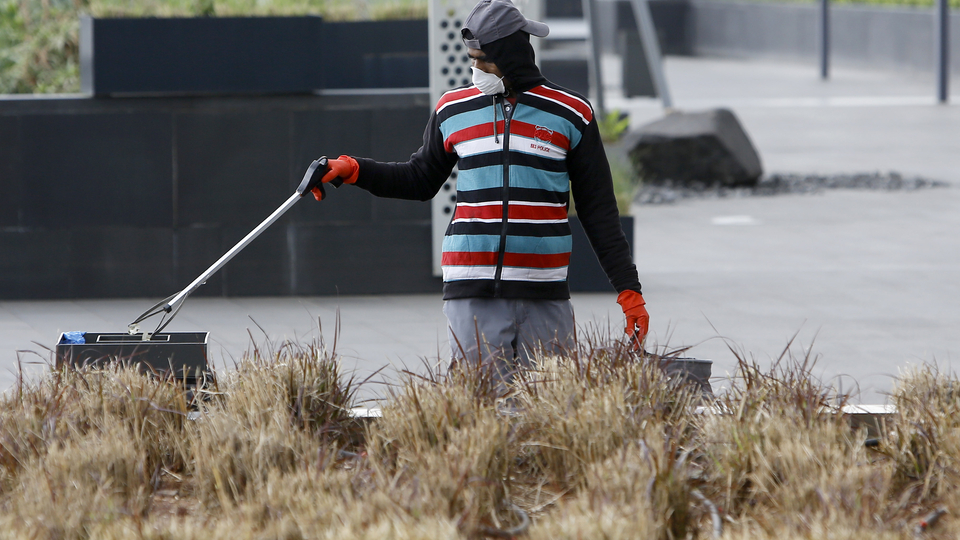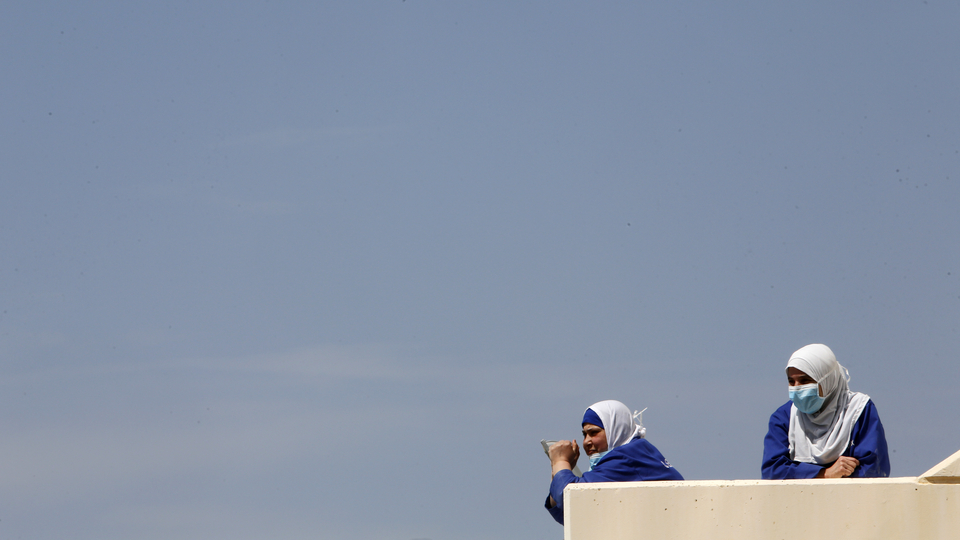Costly and Unsustainable: Where Lebanon’s COVID-19 Vaccination Campaign Went Wrong
On January 27, 2021, former caretaker minister of public health Hamad Hassan announced the launch of Lebanon’s vaccination campaign against COVID-19 in a televised speech from the Serail. Hassan promised 80 percent of the population would be vaccinated by the end of 2021 even though the government had only secured doses for half the population at that time.
As of the publication of this article, however, only 19.5 percent of the population is fully vaccinated and 24 percent is partially vaccinated, according to the Ministry of Public Health (MoPH). At this rate, it would take about two more years to vaccinate everyone. And with the need for booster doses in the coming years, the MoPH and its vaccination committees need to step up their vaccination plans to ensure a sustainable and quicker rollout.
As of October 6, 2021, 78 percent of infections in Lebanon were among unvaccinated people and 81 people under 30 had died, 17 of whom had no underlying conditions according to data shared by the MoPH.
As infection rates rose with the arrival of the Delta variant, Lebanon’s multiple COVID-19 committees placed their bets on an expensive, slow, and disorganized vaccination drive. The National COVID-19 Committee committed to a chaotic, ad-hoc strategy that has already let thousands die.
The COVID-19 Vaccine Committee’s strategy for procurement and rollout was similarly unsustainable. In its planning (or lack thereof) for vaccine procurement, the MoPH failed to strike efficient and sustainable deals. When it negotiated its participation in COVAX — the international initiative to pool countries’ resources for procurement of COVID-19 vaccines — Lebanon struck a deal as a “self-financing” country akin to Canada or Germany.
“Lo and behold, the Republic of Lebanon — that is bankrupt — decided to buy the most expensive, most complicated, and most difficult vaccine available,” said Dr. Salim Adib, a professor of public health and a founding member of the Lebanese Epidemiological Association, in reference to the Pfizer vaccine.
“Lo and behold, the Republic of Lebanon — that is bankrupt — decided to buy the most expensive, most complicated, and most difficult vaccine available." —Dr. Salim Adib, Lebanese Epidemiological Association founding member
Vaccines Alone Are Not Enough
“The vaccine by itself will not end the pandemic,” warned Dr. Fadi el-Jardali, an internationally recognized expert on health policy and management. “We need to expedite the vaccination program, and at the same time we need to ensure that public health measures are applied.”
While vaccines protect from severe illness and death, they are less effective against new emerging strains such as the Delta variant. Moreover, vaccinated individuals who become infected can still transmit the virus, and unvaccinated people — i.e., the majority of Lebanon’s population — can still catch the virus, get sick, and die. Transmission also means the possibility of new strains popping up.
Lebanon’s government tried to pick up the pace of vaccine rollout through weekend vaccination marathons, but had to postpone them due to technical issues related to power and internet outages. The vaccination campaign has also excluded undocumented migrant and refugee populations who may not be able to present the identification papers required to receive the jab.
Despite the rise in infection rates and frequency of Delta cases, the National COVID-19 Committee has not taken any steps to tighten testing-and-tracing regulations at the airport. Nor has the committee ensured that the reopening of crowded public spaces is accompanied by the necessary preventive measures, such as masks and social distancing, to avoid or limit a new surge of infections, hospitalizations, and deaths.

The halls of the Rafik Hariri University Hospital are crowded with healthcare workers and patients. Beirut, Lebanon. April 17, 2020. (Marwan Tahtah/The Public Source)
Based on the lessons from the previous wave, many more lives could be lost if the government continues to rely solely on a mitigation strategy rather than actively planning and implementing comprehensive strategies to curtail or eliminate transmission.
Currently, the government is doing neither: the vaccination plan is slow and other public health measures are practically nonexistent.
The Pitfalls of Loans
At the beginning of the pandemic, the Lebanese state repurposed a World Bank loan dating to 2017, the Lebanon Health Resilience Project, a low-interest loan to be repaid over 23 years with which the MoPH would establish what the World Bank called “a pro-poor Universal Health Coverage program.”
The MoPH reallocated $40 million from the Lebanon Health Resilience Project to equip governmental hospitals to test and treat COVID-19 cases in 2020, and $34 million to procure vaccines in 2021.
Neither the MoPH nor the World Bank have laid out any comprehensive strategies to efficiently use this funding to combat COVID-19.
Several public health experts expressed to The Public Source concerns about the transparency and sustainability of these plans —especially in light of violations committed by Lebanese authorities.
In one of the most scandalous incidents, Lebanese MPs jumped the vaccine line in February, leading the World Bank’s director for the region, Saroj Kumar Jha, to write in a tweet (that was later deleted): “Upon confirmation of violation, World Bank may suspend financing for vaccines and support for COVID19 response across Lebanon!!” Although the World Bank and the Lebanese state seem to have put the incident behind them, they did not enact clear accountability mechanisms moving forward.
In addition to transparency and accountability issues, loans and subsidies “have a huge social cost and they are regressive,” according to Marie-Noëlle Abi Yaghi, the director of Lebanon Support, an NGO that fosters a space for multidisciplinary discussions about social change. Loans increase Lebanon’s public debt at a moment when its currency is depreciated. “They confirm a historic tendency of successive governments in Lebanon to base the socio-economic decisions on ad hoc and patchwork approaches rather than on a sustainable social policy," Abi Yaghi added.
"[Loans] confirm a historic tendency of successive governments in Lebanon to base the socio-economic decisions on ad hoc and patchwork approaches rather than on a sustainable social policy." —Marie-Noëlle Abi Yaghi, Lebanon Support director
For international loans to have positive long term impacts, they must include sustainable strategies that accompany the short-term solutions, according to economist Mike Azar. “Unfortunately, there's no broader program that exists right now and it's not clear what the exit strategy is,” Azar noted.
The ministries of Public Health and of Social Affairs have acquired and started to spend loans to roll out the vaccination as well as cash assistance programs, but neither are being implemented efficiently. Both programs are sponsored and monitored by international organizations like the World Health Organization (WHO) and the World Bank, while the International Red Cross and Red Crescent Movement oversee the vaccination deployment. Yet, the rollout is slow, abuses have been reported, and it is unclear which entities could be held accountable.
The World Bank in Lebanon did not respond to emails from The Public Source requesting an interview or additional information. They provided the following general statement about their support of the vaccine rollout:
“The World Bank is committed to ensuring fair, broad and fast access to COVID-19 vaccines under the Lebanon Health Resilience Project. [...] In addition, the World Bank has established, in consultation with WHO, UNICEF, IOM, UNHCR and UNRWA, an international Joint Monitoring Committee to engage in the monitoring of the vaccination process, identify measures to enhance the quality of the campaign, and ensure joint advocacy throughout the process, based on findings from the third party monitor and other sources.”

A street sweeper wearing a mask is cleaning empty streets. Beirut, Lebanon. March 18, 2020. (Marwan Tahtah/The Public Source)
The financial support of the World Bank, or any other international organization, cannot ensure that transparent and efficient policies are implemented. “In the end, you cannot rely on international organizations as a replacement for your government, because there's only so much they can do,” said Azar. “Their incentives are different from yours, or mine, or the general public.”
The Problem with COVAX
Another example of Lebanon's no-questions-asked dependency on international organizations for vaccine procurement is the COVAX deal.
COVAX is a global initiative launched in 2020 and led by the WHO and Gavi, a public-private partnership for vaccine access founded by the Gates foundation. For the so-called “self-financing countries,” i.e., middle- and high- income countries, COVAX was meant to push costs down as well as provide an insurance policy of sorts — a way to secure an adequate supply of vaccines should bilateral vaccine deals with companies fall through.
For low and lower-middle income countries, a program called “Advance Market Commitment” (AMC) would allow them to receive vaccines for 20 percent of their population, funded by the higher income countries. The list of 92 AMC-eligible countries includes economies with Gross National Income (GNI) per capita under $4,000, plus other World Bank International Development Association (IDA)-eligible economies, according to a Gavi spokesperson.
Lebanon is not on that list. Instead, the Lebanese government agreed to participate as a “self-financing” country.
A Gavi spokesperson declined to disclose the specifics of the contract with Lebanon, stating, “the details of each country’s individual agreement and as well as their communication with COVAX is for them to announce.”
An employee of the MoPH, speaking on condition of anonymity since they were not authorized to speak to the press, told The Public Source that the conditions of Lebanon’s participation in the COVAX program were strictly defined by Lebanon’s economic status, according to its classification as an “upper middle income” country by the World Bank.
Yet this designation clashes with the realities of Lebanon’s economic and financial crisis, which the World Bank itself ranks in the top three most severe crises globally since the mid-nineteenth century and describes as being in a “deliberate depression.” More than 80 percent of the population has fallen under the poverty line, with the monthly minimum wage about $36 at the date of publication.
According to a World Bank spokesperson, Lebanon still falls in the “upper middle income” category given that its most recent recorded GNI per capita, in 2020, is $5,510, (which falls within the $4,096 and $12,695 range assigned to this category). The spokesperson added: “Lebanon’s recession is likely to be arduous and prolonged given the lack of policy making leadership and reforms. While as of now Lebanon remains an upper middle income country, going forward GNI per capita will be continuously updated to reflect the latest available data.”
The shortcomings of the COVAX scheme are no surprise to Merith Basey, the director of Universities Allied for Equitable Medicines in North America and an activist with “Free the Vaccine,” a movement calling on governments and pharmaceutical companies to ensure that the COVID-19 vaccine is available for all as a global common good.
Basey pointed out that COVAX mirrors global dynamics where higher-income countries hold the power to shape the deals. “It's so predictable, this neo-colonialist approach to medicine,” she said.
Lebanon might not be “poor enough,” based on World Bank categorizations, to benefit from donor-funded doses through COVAX, but it is certainly not strong enough to negotiate a fair price either.
Lebanon might not be “poor enough,” based on World Bank categorizations, to benefit from donor-funded doses through COVAX, but it is certainly not strong enough to negotiate a fair price either.
Lebanon’s deal with COVAX is to pay approximately $10.55 per dose (for 2.73 million doses of the AstraZeneca vaccine), the same rate as any other self-financing country.
For comparison, through its direct bilateral agreement with the manufacturer Pfizer, Lebanon is buying 2.1 million doses for a total of $18 million, or the equivalent of $8.5 per dose. If the $28.8 million spent on the COVAX deal had been used in direct bilateral agreement with Pfizer, Lebanon would have been able to purchase approximately 3.4 million additional doses of Pfizer, i.e. more than 600,000 more doses than it currently gets from COVAX.
The COVAX scenario is reminiscent of the case of pneumonia vaccines, whereby the world’s poorest countries can access them through Gavi at a special price ($8.75 per child), while middle-income countries have to pay between $49 in the Philippines and $245 in Lebanon, per child.
A sustainable vaccination campaign would need to use resources more wisely, especially given that booster shots will be needed in the near future.
Despite the lessons the Lebanese state should have learned by now, its slow, expensive, and inefficient vaccine rollout strategy continues to cost Lebanon’s residents further loss of health and lives.
